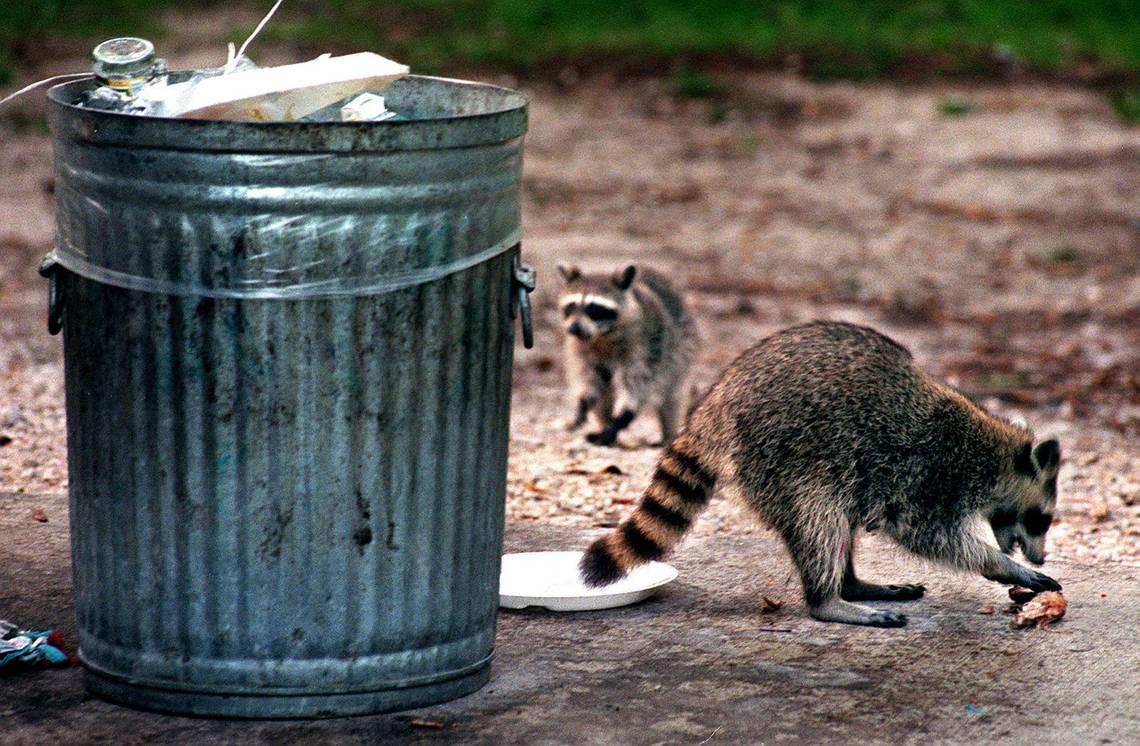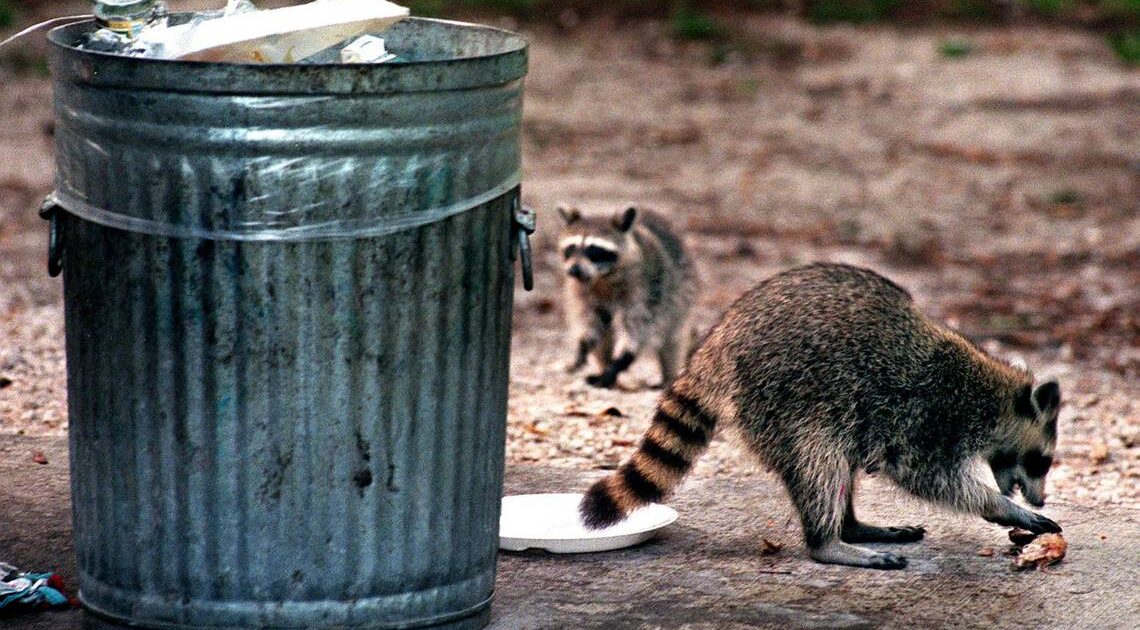Raccoons are notorious for knocking over or prying open garbage cans to reach the scraps of food that they find inside. This can create a big mess that you then have to clean up, lest the spilled garbage poses a health and safety hazard. However, you may have even more to worry about if raccoons are getting into your garbage. Raccoons are likely to make their homes in areas where they know food is plentiful. Once they learn that your garbage can provides meals on a consistent basis, they may move into your attic or crawlspace, requiring raccoon removal. It is better if you can prevent them from getting into your garbage cans in the first place, but this may be easier said than done.
Why Do Raccoons Eat Garbage?
Raccoons are omnivorous, meaning that they can eat just about anything, both plants, and animals. They are also opportunistic feeders, meaning that they will eat whatever is available. Over time, urban developments have encroached on raccoons’ natural habitat. In the process, raccoons have learned that human habitations are reliable sources of easily accessible food. This may be why so many raccoons have adapted to urban environments rather than seeking untouched natural habitats elsewhere. Why bother hunting for food in the wild when humans serve up a whole buffet on an ongoing basis?
Garbage may not smell very good to humans but raccoons, which are foragers by nature, find the smell and taste of human food scraps very appealing. Raccoons do not hibernate, but they do become less active during the winter. They have to prepare for winter rest by building up plenty of fat to sustain them through the cold months when food is scarce. They instinctively seek out rich sources of high-calorie food, which human garbage cans provide in abundance.
How Do You Keep Raccoons Out of Your Garbage Cans?
The best way to keep raccoons out of your garbage cans is to make them as difficult as possible to get into. This can be a challenge for a number of reasons. First, raccoons can weigh nearly 60 pounds, which gives them an advantage when it comes to knocking garbage cans over and causing the contents to spill out. You can use garbage cans with latching lids that prevent them from spilling when knocked over. However, raccoons have five-fingered front paws that are very dextrous despite lacking opposable thumbs. Raccoons are also very intelligent, able to apply problem-solving to figure out how to open the lid. They can be extremely persistent at this if they think they will be rewarded with a feast of scraps that lies within.
It can be helpful to use bungee cords to tie your garbage cans to a fixed object in your yard to prevent raccoons from knocking them over. This can be easily unhooked by the garbage collector when needed. Some people build special racks that hold the garbage cans in place. You may also want to avoid putting out the trash until morning, if possible since raccoons are most active at night.
There are some old wives’ tales or urban legends saying that you can use ammonia, hot pepper, or chemical raccoon repellents to keep them away from your garbage and your home. However, using these as deterrents to keep raccoons out of your garbage isn’t a very good idea. For one thing, they could harm the raccoons, and for another, they usually aren’t very effective. Even if you have some short-term success, eventually the raccoons will adapt, and the success will not last.
What if the Raccoons Get Into Your Home?
Despite your best efforts, raccoons may eventually make their way into your home. This isn’t any cause to panic, but it does require swift action. Contact Skedaddle for wildlife control in Waukesha involving raccoons or any other unwanted animal guests.




